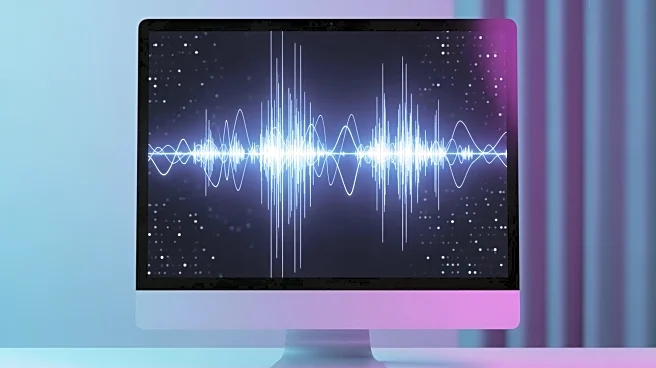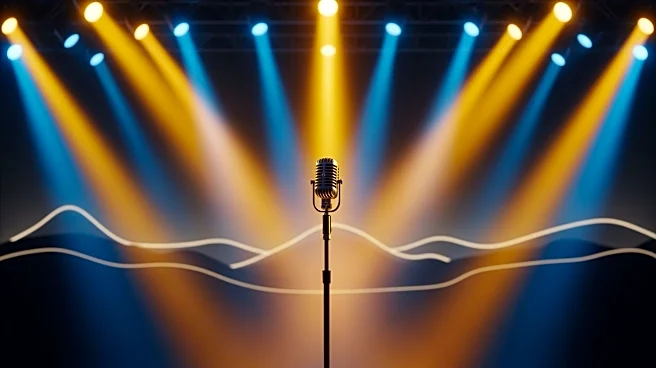What's Happening?
Sora, an AI video generator developed by OpenAI, is revolutionizing the creation of AI-generated videos, raising concerns about the authenticity of digital content. Launched in 2024, Sora has recently been updated with a new model, Sora 2, and a social
media app that exclusively features AI-generated videos. The app's popularity has surged, particularly due to its 'cameo' feature, which allows users to insert likenesses into AI-generated scenes. This development has sparked worries about the potential for deepfakes to spread misinformation and blur the lines between reality and AI-generated content. Public figures and celebrities are particularly vulnerable to these deepfakes, prompting unions like SAG-AFTRA to urge OpenAI to implement stronger safeguards.
Why It's Important?
The rise of Sora and similar AI technologies poses significant challenges for verifying the authenticity of digital content. As deepfakes become more realistic and accessible, the potential for misuse in spreading misinformation increases, impacting public trust in media. This development could have far-reaching implications for industries reliant on digital content, such as entertainment, journalism, and social media. The ability to create convincing deepfakes with minimal skill could lead to reputational damage for individuals and organizations, necessitating new strategies for content verification and digital literacy. The situation underscores the need for robust detection tools and ethical guidelines to manage the impact of AI-generated content.
What's Next?
As AI-generated content becomes more prevalent, stakeholders including tech companies, social media platforms, and regulatory bodies will need to collaborate on developing effective detection and verification methods. OpenAI and other AI developers may face increased pressure to enhance transparency and accountability in their technologies. Social media platforms might implement stricter policies for labeling AI-generated content to help users discern authenticity. Additionally, public awareness campaigns could be launched to educate users on identifying deepfakes and understanding the implications of AI-generated media. The ongoing evolution of AI technology will likely prompt further discussions on ethical standards and regulatory frameworks.
Beyond the Headlines
The ethical implications of AI-generated content extend beyond immediate concerns of misinformation. The ability to manipulate digital likenesses raises questions about privacy, consent, and intellectual property rights. As AI tools become more sophisticated, the potential for misuse in creating unauthorized or harmful content increases, necessitating legal and ethical considerations. The cultural impact of AI-generated media could also influence societal perceptions of reality and authenticity, challenging traditional notions of creativity and authorship. Long-term, the integration of AI in media production may redefine industry standards and practices, prompting a reevaluation of the role of human creativity in digital content creation.















